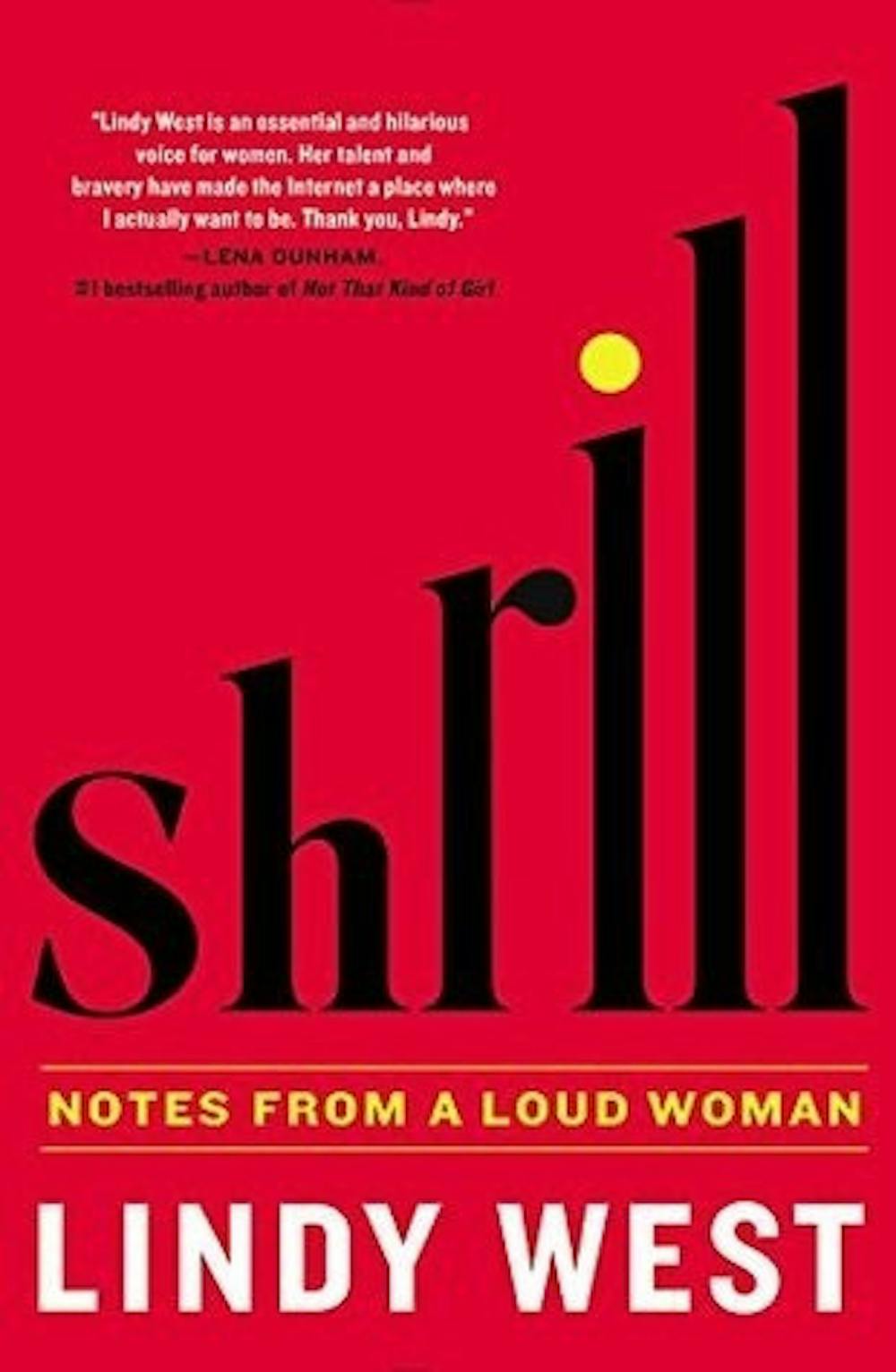In her debut collection of essays, “Shrill,” available in print and as an audiobook, author Lindy West takes a number of anti-feminist, fatphobic and misogynistic beliefs and challenges readers to examine the underpinnings of these hegemonic and harmful ideologies.
What does that mean in plain English? West supports women. She believes fat bodies are worthy of respect, space and love. And she believes that women have more to offer the world than just their sexual appeal to men. She also believes this in spite of the fact that the predominant culture in the United States would suggest otherwise.
West is a smart writer and an in-tune cultural critic. One of her strengths is her vulnerability. For example, in one of her essays, she recounts calling out her former boss, well- known sex columnist Dan Savage, for his insulting rhetoric surrounding fat people. In another, she tells of the abortion she had before she was ready to become a parent. In a third, she tries to explain why there really is no appropriate place for rape jokes, despite the fact that some stand-up comedians favor them.
These positions and willingness to be open and confrontational about issues that are largely taboo in our culture should garner West an award for bravery. However, I’m concerned that the audience most likely to consume her work— or the words of any “shrill” woman— is an audience that is already on board with her message. And in that respect, regrettably, she may not be catalyzing widespread change — The same may be true of this very column.
West’s audience is likely white women between the ages of 20 and 45 who are highly literate, regular readers, willing to appreciate rhetorical nuance and sensitive to feminist issues. Wonderful. They likely look to her to help themselves better articulate some of the ideological conundrums they encounter. That’s fine. But, I suspect that the people who most need to engage in discussions regarding a woman’s bodily autonomy, such as some male legislators in Congress, for example, will never page through this publication. The people who most need contact with this work are likely oblivious to its existence.
Is it West’s responsibility to lure that readership towards her arguments? No! But how do we move a conversation forward when the interlocutors create an echo chamber? In plain English: if the only people willing to hear a message are those who already believe it, what, ultimately, are we accomplishing? Is the book good? Sure. As with any collection of essays, some are stronger and more compelling than others. I have already mentioned my favorites.
To whom would I recommend it— with realistic hopes that they might read it? You can see my quote above: “white women between the ages of 20 and 45 who are highly literate, regular readers, willing to appreciate rhetorical nuance and are sensitive to feminist issues.” What more might I hope for? That there be a way to position the work so that the issues it addresses are heard by more people who will encounter the ideas as novel, provocative and so alien as to be engrossing. For more titles like this one, see Roxane Gay’s “Hunger” or Samantha Irby’s “Meaty.”
The Librarian is in: "Shrill"

Comments



